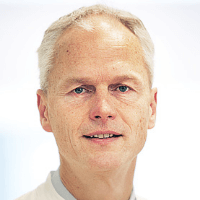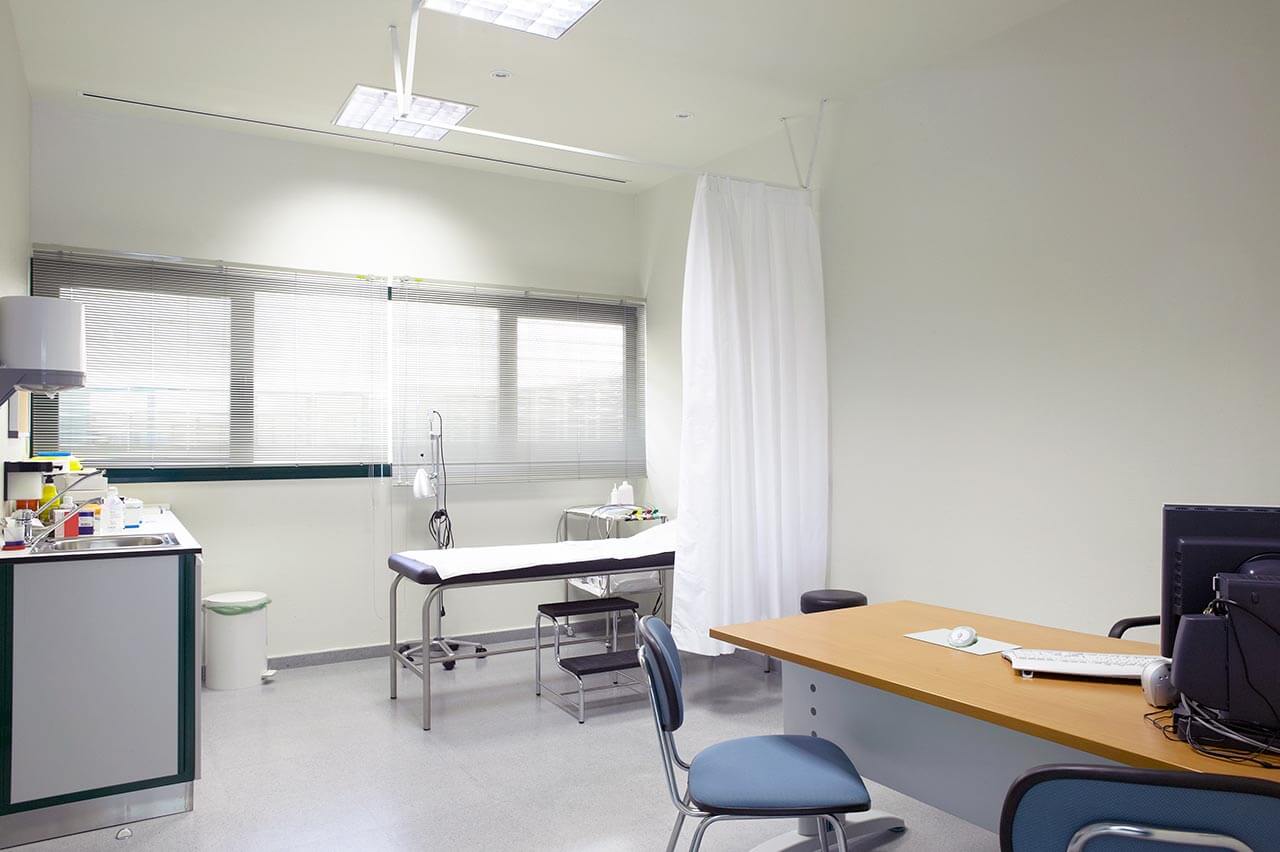
The program includes:
- Primary presentation in the clinic
- medical history, including family history
- complex neurological and orthopedic examinations
- CT / MRI / X-ray examination
- complex neurophysiological examinations
- individual rehabilitation program, which includes:
- propriozeptive neuromuskuläre fazilitation (PNF)
- transcranial magnetic stimulation (TNS)
- orofacial stimulation of Castillo Morales
- functional propriotrening
- various methods of respiratory gymnastics
- Wii Fit training in the use of the balance
- neuropsychological therapy
- functional therapy of the upper extremities (ArmeoSpring)
- functional electrical stimulation / neurostimulation
- kinesitherapy (physiotherapy)
- biocontrol with feedback
- healing deep muscle massage
- neuromuscular electrostimulation
- acupuncture of spasticity and pain syndromes
- occupational therapy
- psycho-educational classes
- logopedia in the language of the patient
- Individual physiotherapy
- microcurrent treatment
- fangotherapy / cryotherapy
- antispasmodic drug therapy (incl. Botox)
- mobilization of limb joints
- hydrotherapy / massage therapy / reflexology
- training on special trainers (Lokomat, exoskeleton)
- bladder training
- bowel training
- and etc.
- constant care nurses
- stay in the hospital with full board
- symptomatic and drug therapy
Service
You may also book:
 BookingHealth Price from:
BookingHealth Price from:
About the department
The Department of Neurology at the St. Mauritius Therapieklinik Meerbusch offers the comprehensive rehabilitation treatment for patients with diseases of the central and peripheral nervous system. The department's specialists mostly deal with the treatment of patients with lesions of the brain and spinal cord due to strokes, traumatic brain injuries, inflammatory and degenerative pathologies of the brain, transverse myelitis, etc. The department's competence also covers medical care for especially rare neurological disorders. The department has in its arsenal the very latest methods for the best possible recovery of skills lost due to the disease. An individual approach to treatment plays an important role in achieving a successful result. The Chief Physician of the department is Prof. Dr. med. Stefan Knecht.
Most patients are admitted to the department directly from the emergency medical service. These are patients in a serious condition who need constant medical monitoring and early rehabilitation (rehabilitation phase B), as well as patients in a milder condition who can cope with many everyday tasks on their own (rehabilitation phases C and D). The patients with neurological disorders are often simultaneously indicated various types of therapy. In most cases, to achieve the optimal result, the doctors prescribe therapeutic gymnastics, ergotherapy, sports therapy, dysphagia correction, restoration of language and speech functions, treatment of memory and attention disorders, art therapy and music therapy. Obviously, all types of therapy can be combined depending on the specific clinical case. In addition, an important component of the therapeutic process is the support of social services and close relatives of the patients.
The neurological rehabilitation aims to improve the clinical condition of the patient and maximize the restoration of self-care ability. In order to guarantee the best and long-term result of rehabilitation, the department applies both classical and innovative treatment methods with high therapeutic potential.
It is worth noting that the medical team of the department has exceptional experience in early rehabilitation of pathologies of the central nervous system. The department is engaged in the rehabilitation of patients with severe brain disorders. Such patients are characterized by inadequate perception of the world and their own bodies. They are able to breathe on their own, but require special approaches to treatment and active monitoring by multidisciplinary groups of doctors. The goal of early rehabilitation in seriously ill patients is not only stabilization of their clinical condition, but also medical diagnostics with the planning of further rehabilitation measures.
As a rule, early neurological rehabilitation is indicated for patients in a vegetative state (these are patients with extensive brain injury after leaving an unconscious state; they periodically return to consciousness, but at the same time they are unable to consciously contact the outside world) and minimally conscious state (a state of partial awareness when the patient has the signs of self-awareness and awareness of the world around him).
The department's service range covers the rehabilitation in the following pathological conditions:
- Conditions after strokes and cerebral hemorrhages
- Conditions after traumatic brain injuries, polytrauma
- Conditions after inflammatory diseases of the central nervous system
- Conditions in systemic atrophy of the central nervous system
- Conditions in extrapyramidal and motor disorders (for example, Parkinson's disease)
- Other degenerative diseases of the nervous system
- Conditions in demyelinating diseases of the central nervous system (for example, in multiple sclerosis)
- Conditions in episodic and paroxysmal disorders of the nervous system (for example, in epilepsy)
- Conditions in pathological lesions of nerve roots and nerve endings
- Conditions in polyneuropathies and other diseases of the peripheral nervous system
- Conditions in diseases of the muscles and neuromuscular synapses
- Rehabilitation measures in other lesions of the nervous system
Curriculum vitae
Education and Professional Career
- 1981 - 1987 Study of Medicine, University of Heidelberg, University of Hamburg, University of California San Francisco and Harvard Medical School, Boston, USA.
- 1988 - 1993 Medical specialist training in the Department of Neurology at the University Hospital Duesseldorf.
- 1993 Board certification in Neurology.
- 1993 Research Fellow in Neurological Physiology at the University of Wisconsin in Madison, USA.
- 1995 Department of Neuroradiology, University Hospital Münster
- 1996 Clinical Research Fellow in the Department of Clinical Neurophysiology, Uppsala, Sweden.
- 1997 Specialization in Neurological Intensive Care.
- 1998 Habilitation in Neurology and Neurophysiology.
- 1997 - 2011 Senior Physician in the Department of Neurology at the University Hospital Muenster.
- 1997 - 2011 Head of the Section of Cognitive Neurology at the Department of Neurology of the University Hospital Muenster.
- 2002 - 2008 Deputy Head of the Department of Neurology at the University Hospital Muenster.
- 2008 - 2011 Director of the Neurology Centre of the Schön Klinik Hamburg-Eilbek.
- 2011 Invitation to the position on the Chair of Social Medicine at the University of Lübeck (declined).
- Since 2011 Director of the St. Mauritius Therapieklinik Meerbusch and Professor of Neurology at the University of Duesseldorf.
Awards
- Bennigsen-Foerder Prize.
- Research Prize of the Fuerst Donnersmarck Foundation.
Photo of the doctor: (c) St. Mauritius Therapieklinik
About hospital
According to the Focus magazine, the St. Mauritius Therapieklinik Meerbusch ranks among the top German rehabilitation medical facilities!
The hospital is a modern rehabilitation center where patients with neurological diseases can undergo effective rehabilitation on an inpatient basis. The hospital admits for treatment patients of all age groups, ranging from young children to elderly patients. The rehabilitation programs are developed taking into account the age of the patient and the features of a particular diseases of the nervous system.
As the academic hospital of the University of Duesseldorf, the medical facility is actively engaged in research activities. This guarantees patients access to innovative techniques in the field of rehabilitation medicine.
The department’s specialists believe that the timely initiation of a treatment course, intensive exercises and supporting activities aimed at the consolidation of the achieved result are crucial in the successful rehabilitation outcome. The patient’s health is in the good hands of a large multidisciplinary team consisting of specialized doctors, functional therapists and nursing staff. A strict quality management system ensures the high level of therapy, work of the personnel and internal administrative processes. This contributes to the best treatment results and the best possible satisfaction of the patients.
The great advantage is the location of the hospital on the territory of a beautiful landscape park. The hospital has a pleasant atmosphere. The patients will also appreciate the modern design of the patient rooms and treatment rooms. In addition, the hospital operates under the patronage of the Catholic Church, that is why the attitude towards patients is careful and respectful, according to Christian traditions.
Photo: (c) depositphotos
Accommodation in hospital
Patients rooms
The patients of the St. Mauritius Therapieklinik Meerbusch live in bright and comfortable rooms with all the necessary amenities. The standard patient room includes a comfortable bed, a bedside table, a table and a chair for receiving visitors, a wardrobe for storing clothes, a TV and a telephone. Wi-Fi is also available in the patient rooms.
Meals and Menus
All hospitals, as well as the restaurant for the patients, where You are served by the service personnel, offer You a daily rich choice of dishes. Since 2005 the Hospital has had the state-of-the-art food preparation system «cook & chill» that ensures a high-quality nutrition for the patients.
Further details
Standard rooms include:




